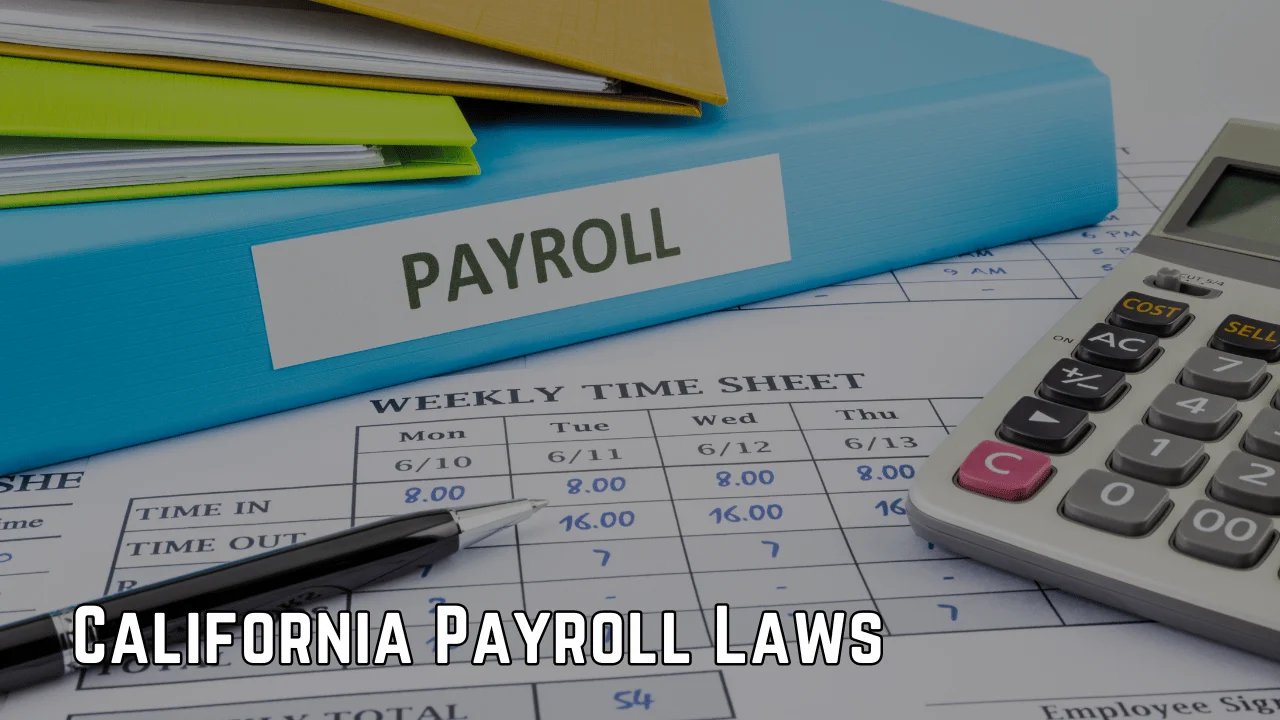In the vast landscape of employment, a sound knowledge of one’s rights and obligations is of paramount importance. For those in the Golden State, the intricacies of California payroll laws come into play, encompassing critical areas such as overtime pay, minimum wage, off-the-clock work restrictions, mandated breaks, and discharge obligations.
While these laws are established to safeguard workers, they are not without exceptions and variations that can complicate their application. This discussion serves as an exploration of these complexities, focusing on five key aspects that every California worker must be well-versed in, to ensure their rights are protected and their understanding is comprehensive.
Understanding California Payroll Laws Coverage
California Payroll Laws provide comprehensive coverage and protections for all non-exempt workers within the state, regardless of their industry or specified roles. These laws ensure that employees receive fair wages and suitable working conditions. They cover aspects like minimum wage, overtime pay, and restrictions on off-the-clock work.
Employees are protected from being exploited and are ensured of receiving at least the state’s minimum wage. Moreover, any work exceeding the standard 8-hour workday or 40-hour workweek must be compensated as overtime. The prohibition of off-the-clock work safeguards employees from being required to work without compensation.
The laws also mandate appropriate meal and rest breaks, ensuring that workers are not overworked. These comprehensive protections underpin the rights and wellbeing of all non-exempt California workers.
Off-the-Clock Work Prohibitions and Enforcement
In the sphere of labor law, off-the-clock work is a significant issue that is meticulously regulated under California Payroll Laws. These regulations strictly forbid employers from allowing or encouraging employees to work outside of their regular work hours without proper compensation.
- Unpaid Overtime: This is a clear violation, as it essentially amounts to employees working for free during time that should be compensated.
- Unrecorded Work: Tasks performed before clocking in or after clocking out fall into this category, and employers are liable even if such work is not officially recorded.
- Ignorance of Law: Employers cannot claim ignorance of these rules as a defense, emphasizing the importance of awareness and compliance.
These provisions underscore the commitment of California’s labor laws to uphold the rights and welfare of employees.
Rest and Meal Breaks Requirements
Under the purview of California Payroll Laws, stringent regulations mandate the provision of rest and meal breaks for all non-exempt employees, ensuring a balanced and healthy work environment.
For every four hours of work, employees are entitled to a 10-minute rest break. Additionally, if a work period exceeds five hours, a meal break of no less than 30 minutes is required. These breaks should ideally be in the middle of each work period and must be uninterrupted, meaning employees should not be on-call or expected to perform work duties during this time.
Employers who fail to comply with these regulations may face legal repercussions, underscoring the importance of understanding and adhering to these crucial labor laws.
Minimum Wage Regulations in California
Moving beyond the realm of mandatory breaks, another critical component of the California Payroll Laws pertains to the regulations set for minimum wages in the state. The Golden State is known for its progressive labor laws, and its minimum wage regulations are no exception.
- California’s current minimum wage for large employers (26 or more employees) is $14 per hour, while for small employers (25 or fewer employees), it is $13 per hour.
- Some cities in California, like San Francisco, have an even higher minimum wage, reflecting the high cost of living.
- Certain worker categories, such as learners or disabled workers, may be paid less than the minimum wage under specific conditions.
These regulations play a pivotal role in ensuring workers are compensated fairly for their labor.
Discharged Workers Payment Obligations
California Payroll Laws impose specific payment obligations on employers for workers who have been discharged or terminated from their roles.
Upon discharge, workers are entitled to receive all accrued pay and benefits, including compensation for unused vacation time. The final paycheck should include all due wages and benefits reflecting the worker’s total service.
If an employer fails to meet these payment obligations, they may face penalties, including waiting time charges. These charges are calculated based on the employee’s regular daily wage and may continue for up to 30 days until the full payment is made.
This law ensures workers receive just compensation, providing a safety net for those exiting their roles.
Conclusion
In conclusion, California payroll laws provide critical protections for non-exempt employees, ensuring fair pay, regulating off-the-clock work, and mandating rest and meal breaks.
The state’s minimum wage varies, contingent upon the number of employees and location.
Lastly, discharged workers are entitled to certain compensations.
Employers’ non-compliance to these laws could result in penalties, underlining the importance for employees to understand their rights and for businesses to adhere to these regulations.







